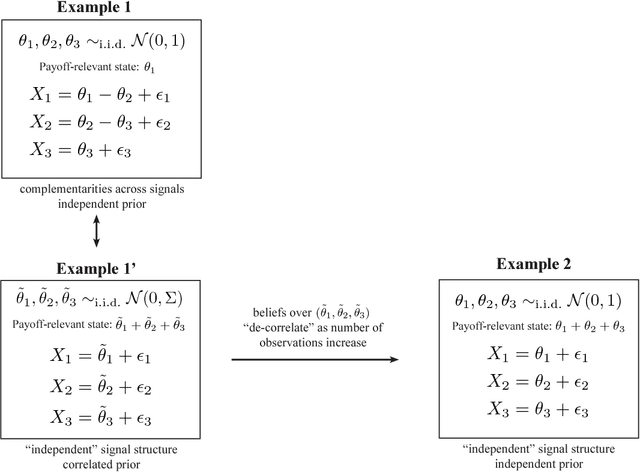Xiaosheng Mu
Overabundant Information and Learning Traps
Jun 19, 2018Abstract:We develop a model of social learning from overabundant information: Short-lived agents sequentially choose from a large set of (flexibly correlated) information sources for prediction of an unknown state. Signal realizations are public. We demonstrate two starkly different long-run outcomes: (1) efficient information aggregation, where the community eventually learns as fast as possible; (2) "learning traps," where the community gets stuck observing suboptimal sources and learns inefficiently. Our main results identify a simple property of the signal correlation structure that separates these outcomes. In both regimes, we characterize which sources are observed in the long run and how often.
Optimal and Myopic Information Acquisition
May 14, 2018

Abstract:We consider the problem of optimal dynamic information acquisition from many correlated information sources. Each period, the decision-maker jointly takes an action and allocates a fixed number of observations across the available sources. His payoff depends on the actions taken and on an unknown state. In the canonical setting of jointly normal information sources, we show that the optimal dynamic information acquisition rule proceeds myopically after finitely many periods. If signals are acquired in large blocks each period, then the optimal rule turns out to be myopic from period 1. These results demonstrate the possibility of robust and "simple" optimal information acquisition, and simplify the analysis of dynamic information acquisition in a widely used informational environment.
 Add to Chrome
Add to Chrome Add to Firefox
Add to Firefox Add to Edge
Add to Edge